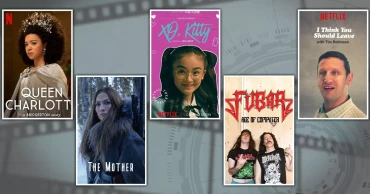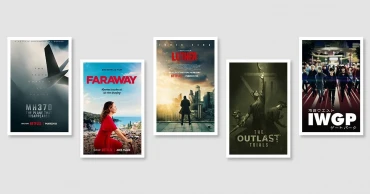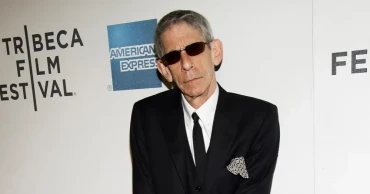TV
12 Bangla Dramas to Watch During Eid-ul-Fitr 2023
Eid Ul Fitr, the largest festival of Muslims, is right around the corner. Like every year, television channels, OTT platforms, and production houses in Bangladesh are gearing up for week-long festivities. One of the largest parts of the entertainment bonanza of the Eid-ul-Fitr 2023 is the Bengali Eid Natoks, telefilms, and web series. This year too, Bengali dramas performed by renowned artists are lined up to entertain the viewers during the Eid holidays. Let’s have a look.
12 Bengali Dramas Coming to Eid-ul-Fitr 2023
Priyo Poribar
Like every year, the popular TV actor Apurba features in several upcoming Eid projects including Priyo Poribar.
In Priyo Poribar, Apurba plays the role of an elderly patriarch of a middle-class family. The storyline shows how a family-head deals with his growing children, and changing times. The struggle of a father to hold onto his family makes up the premise of the telefilm. Veteran actress Tarin will be seen alongside Apurba in the lead role.
With the story by Mezbah Uddin Sumon, the telefilm is directed by Rubel Hasan. The telefilm will be available on Club 11 Entertainment’s official YouTube channel.
Read More: 6 Bangladeshi Movies Releasing on Eid-ul-Fitr 2023
Mon Jurey
This Eid, Jovan, and singer-turned-actress Poushi are pairing up for an upcoming comedy telefilm titled Mon Jurey.
The basic theme of the drama centers around how two love birds living in a small locality go about their day and hide their love from the family.
Mon Jure has been produced by Shahed Ali Pappu. Jakaria Showkhin and Sohel Rana Srabon wrote the story.
The telefilm will be available on CMV Entertainment’s official YouTube channel.
Read More: Govt allows import of foreign films on five conditions
Shubhashini
Shubhashini is another project of Apurba this Eid ul Fitr. Keya Payel also stars in this drama. The story follows a quintessential romance between two different people who came across each other by chance.
Shubhashini has been directed by Syed Shakil with the story from Mezbah Uddin Sumon. In addition to Apurba and Keya Payel, viewers will see Dilara Zaman, Samanta Shimu, and Khalequzzaman in supporting roles.
The telefilm will be broadcasted on Maasranga TV.
Read More: May 2023 New Releases: Netflix Original English Movies, Series
Irsha
Following Shubhashini, viewers will see another Apurba–Payel pair up in Irsha. This is a story of two couples constantly finding each other’s opposition. Yet the storyline will show how the couple overcame the crisis and stayed together.
Irsha is directed by Syed Shakil while the script is written by Mezbah Uddin Sumon. The telefilm will be available this Eid ul Fitr on CMV Entertainment’s official YouTube channel.
Read More: Nurul Alam Atique's 'Pyara Subash' at 45th Moscow Film Festival
May 2023 New Releases: Netflix Original English Movies, Series
Queen Charlotte: A Bridgerton Story
Coming to Netflix on May 04, 2023
Queen Charlotte: A Bridgerton Story is the prequel series of Bridgerton. Chris Van Dusen created the American historical fictional romantic television series Bridgerton for Netflix.
consisting of six episodes, the new show appears to be a limited series. Here the audience will see the origin of Queen Charlotte, starring Golda Rosheuvel in the main series. Rewind the clock, the series will portray the rise and romantic life of the young Queen Charlotte. Besides, the stories of Lady Violet Bridgerton - starring Ruth Gemmell - and Lady Danbury - played by Adjoa Andoh - will enchant the audience.
Directed by Tom Verica, the shooting of this prequel started on On March 28th. Shonda Rhimes is the main writer on the new spin-off. The show is produced by Betsy Beers and Tom Verica.
Read more: 10 Netflix Originals Coming in April 2023
The Mother (2023)
Coming to Netflix on May 12, 2023
The Mother is one of the three upcoming Netflix Original projects starring Jennifer Lopez. Directed by Niki Caro, the film has been produced by Lopez’s Nuyorican Productions with a creative partnership with the OTT platform Netflix.
Tahsan buys a burnt lungi at Tk 1 lakh
Popular singer and actor Tahsan Khan has bought a lungi burnt in the devastating fire at Bangabazar at Tk 1 lakh responding to a call from Ekushey Padak winning organisation Bidyanondo Foundation.
The foundation shared the information on Wednesday through a facebook post on their page.
The post reads, "Popular artiste Tahsan has bought a burnt lungi for one lakh taka. The money is being delivered to the affected traders. Many celebrities are requesting Bidyanondo, everyone wants to keep some clothes burnt in the fire.”
Earlier, on Tuesday, a devastating fire broke out at Bangabazar market around 6:10 am which gutted thousands of shops and injured at least 12 people.
Shakib Khan goes to DB, files written complaint against allegations of rape
Dhallywood actor Shakib Khan went to the Detective Branch (DB) office of Dhaka Metropolitan Police (DMP) on Sunday eveing and filed a written complaint with DB against film producer Rahmat Ullah who brought a rape allegation against him.
DB’s additional commissioner Harun or Rashid assured that he would bring the fraudster under the law, Shakib said.
“He listened to everything and saw all the evidence taking enough time. He also saw all the claims of that scammer,” said Shakib Khan.
Shakib said that he is very confident after hearing the DB chief’s words. “I believe DB will catch the criminal quickly as they solve other cases quickly and catch other criminals quickly”
“I have filed a written complaint and he has taken my complaint”, said the Dhallywood actor.
Earlier on Wednesday (15 March), Rahmat Ullah, a producer, filed a written complaint against the actor in the Bangladesh Film Artists Association accusing him of sexual misconduct and raping an Australian woman, a co-producer of the film "Operation Agneepath".
10 Netflix Originals Coming in April 2023
A new month means another host of exciting releases from Netflix. With March already slated to have fresh releases of series, films, and documentaries. It's no surprise that there are more contents than you could possibly consume. And the story is more or less the same for April as well. Here we have curated a list of the 10 best Netflix originals series and movies coming in April.
10 Netflix Original Films, and TV Shows Releasing on Netflix in April 2023
Find out which films and TV series to watch on Netflix in April.
War Sailor – Mini Series – 5th April
War Sailor is a Norwegian survival movie set in the second world war. Alfred Garnes is a happy-to-go sailor who works on a merchant ship with his friend Wally. Amidst one of their stops, the second world war breaks out. Now it's in Alfred and Wally’s hands to save their ship from the approaching German soldiers.
The movie is directed by Gunnar Vikene and produced by Maria Ekerhovd. It stars Kristoffer Joner and Pål Sverre Hagen in lead roles.
Read More: Netflix making live-action 'One Piece' from popular manga
Hunger – Movie – 6th April
Hunger follows the story of Aoy, a chef who runs her parent’s stir-fried noodles restaurant. On one fine day, Aoy gets an invitation from a top chef to join his famous team. The story follows A Boy's struggle and eventual success in the world of the luxury fine dining experience.
Hunger is directed by Sitisiri Mongkolsiri and produced by Kongdej Jaturanrasamee and Soros Sukhum. The movie stars Chutimon Chuengcharoensukying in the role of Aoy.
Queenmaker – Series – 14th April
Korean drama has been in high demand on Netflix since the success of Squid Game. With high international demand, there have been several Korean lineups confirmed for 2023.
The first release of 2023 starts with Queenmaker. It’s the story of two women, a skilled career woman named Hwand Do-hee and a labor rights lawyer Oh Seung Sook. Two seemingly unconnected are fated to join forces as Hwang Do-hee is hell-bent on making Oh Seung Sook the mayor of Seoul.
The series is written by Moon Ji-young and directed by Oh Jin-Seok. The first season will have 12 episodes.
Read More: Top 10 Netflix Originals Shows, Movies Coming in March 2023
Beef – Comedy Drama – 6th April
Imagine being part of a road rage incident. What comes to your mind? Anger? helplessness? or frustration?
The story of Beef follows two random people involved in a road rage incident. What follows and the spiraling fallout between the two people makes up the basic premise of the comedy-drama.
The series stars Steven Yeun as Danny Cho and Ali Wong as Amy Lau. The series has been created for Netflix by Lee Sung Jin.
Transatlantic – Period Drama – 7th April
Transatlantic follows the story of the 1940 refugee crisis in Marseille, France. It’s the true story based on Varian Fry, a journalist working to rehabilitate artists and journalists fleeing the Nazi occupation.
Fry allies with Mary Jayne Gold, an American socialite, and heiress. Together they find a secret French villa as a temporary hideout place for the refugees. The two played a pivotal role in saving many European social activists and artists of that time.
The movie draws inspiration from The Flight Portfolio written by Julie Orringer. The novel has been adapted for screenplay by Anna Winger.
Read More: Top 10 Upcoming South Indian Movies in March 2023
Top 10 Netflix Originals Shows, Movies Coming in March 2023
Netflix is in a league of its own when it comes to streaming platforms. Often considered the pioneer of streaming services, Netflix strongly holds the title of the most subscribed platform across the world. While there has been a drop in viewership recently, Netflix is determined to bring quality content across genres for its viewers. On that note, here’s a list of 10 of the best original TV shows and movies coming to Netflix in March 2023.
10 Netflix Original TV Series and Films Releasing on March 2023
MH370: The Plane That Disappeared – 8th March
The first on our list is a docuseries based on the infamous disappearance of the Malaysian flight MH370 back in 2014. The British docuseries is produced by Harry Hewland and directed by Louise Malkinson for Raw TV. Netflix acquired the global distribution rights for the series.
The series will debut as a three-part story with the first part to releasing on 8th March. The docu-series will take an extensive dive into the disappearance of all the passengers onboard, subsequent global search operations, and possible reasons for the disappearance.
Read More: Top 10 Upcoming South Indian Movies in March 2023
Faraway – 8th March
The next on our list is a German rom-com movie titled Faraway. The film has been directed by Vanessa Jopp and written by Jane Ainscough and Alex Kendall. It stars Naomi Krauss in the lead role.
The movie revolves around Zeynip (Naomi) as she struggles to find the meaning of life in an unhappy marriage and overworked life. One day she finds out that her mother has left her a small cottage in Croatia as her last will. Tired from life Zeynip decides to escape everything and move to find out more about the will. What follows and who she meets there forms the basic story of the movie.
Luther: The Fallen Sun – 10th March
One of the most anticipated crime thrillers for this year is the Idris Elba starrer Luther: The Fallen Sun. It’s a continuation of the famous TV series of the same name. Idris Elba reprises his role as John Luther, a brilliant yet disgraced and jailed detective. As the cyber psychopath terrorizes London, Luther decides to take the matter into his own hands.
Read More: ‘Murir Tin’: Coke Studio Bangla launches season 2 with nod to local dialects
The movie adaptation of the series has been done by Neil Cross who is also the writer of the original TV series with direction from Jamie Payne. The movie stars Andy Serkis and Cynthia Erivo in supporting roles.
Outlast – 10th March
Unscripted reality shows have become hugely popular in recent times and Netflix seems to be privy to them. Outlast is a Netflix original survival reality show where 16 participants will have to survive wild Alaska for a chance to win 1 million dollars.
The catch? They’ll have to work as part of a team. The 8-episode series will drop on Netflix on 10th March.
Read More: Bangla Natoks to Watch on Valentine’s Day 2023
Ikebukuro West Gate Park – 15th March
Ikebukuro West Gate Park follows the story of Makoto, a 20-year-old delinquent who frequently gets into trouble for his over-the-top curiosity and unruly nature. Makoto is assisted by a group of his best buddies. How this group of delinquents navigates life and how they unravel deeper mysteries makes up the basic premise of the anime.
The first season of the anime has already been completed back in 2020 by Kobo Animations. Netflix has acquired the global distribution right of the series.
Richard Belzer, stand-up comic and TV detective, dies at 78
Richard Belzer, the longtime stand-up comedian who became one of TV’s most indelible detectives as John Munch in “Homicide: Life on the Street” and “Law & Order: SVU,” has died. He was 78.
Belzer died Sunday at his home in Beaulieu-sur-Mer, in southern France, his longtime friend Bill Scheft said. Scheft, a writer who had been working on a documentary about Belzer, said there was no known cause of death, but that Belzer had been dealing with circulatory and respiratory issues. The actor Henry Winkler, Belzer’s cousin, tweeted, “Rest in peace Richard.”
For more than two decades and across 10 series — even including appearances on “30 Rock” and “Arrested Development” — Belzer played the wise-cracking, acerbic homicide detective prone to conspiracy theories. Belzer first played Munch on a 1993 episode of “Homicide” and last played him in 2016 on “Law & Order: SVU.”
Belzer never auditioned for the role. After hearing him on “The Howard Stern Show,” executive producer Barry Levinson brought the comedian in to read for the part.
“I would never be a detective. But if I were, that’s how I’d be,” Belzer once said. “They write to all my paranoia and anti-establishment dissidence and conspiracy theories. So it’s been a lot of fun for me. A dream, really.”
From that unlikely beginning, Belzer’s Munch would become one of television’s longest-running characters and a sunglasses-wearing presence on the small screen for more than two decades. In 2008, Belzer published the novel “I Am Not a Cop!” with Michael Ian Black. He also helped write several books on conspiracy theories, about things like President John F. Kennedy’s assassination and Malaysia Airlines Flight 370.
“He made me laugh a billion times,” his longtime friend and fellow stand-up Richard Lewis said Sunday on Twitter.
Born in Bridgeport, Connecticut, Belzer was drawn to comedy, he said, during an abusive childhood in which his mother would beat him and his older brother, Len. He would do impressions of his childhood idol, Jerry Lewis. “My kitchen was the toughest room I ever worked,” Belzer told People magazine in 1993.
After being expelled from Dean Junior College in Massachusetts, Belzer embarked on a life of stand-up in New York in 1972. At Catch a Rising Star, Belzer became a regular performer and an emcee. He made his big-screen debut in Ken Shapiro’s 1974 film “The Groove Tube,” a TV satire co-starring Chevy Chase, a film that grew out of the comedy group Channel One that Belzer was a part of.
Before “Saturday Night Live” changed the comedy scene in New York, Belzer performed with John Belushi, Gilda Radner, Bill Murray and others on the National Lampoon Radio Hour. In 1975, he became the warm-up comic for the newly launched “SNL.” While many cast members quickly became famous, Belzer’s roles were mostly smaller cameos. He later said “SNL” creator Lorne Michaels reneged on a promise to work him into the show.
But Belzer became one of the era’s top stand-ups. He was known especially for his biting, cynical attitude and his witty, sometime combative banter with the audience. As one of the most influential comedians of the ’70s, Belzer was a master of crowd work.
“My style evolved from dealing with drunken people at twelve, one, two in the morning and trying to be like an alchemist and get the lead of their lives and turn it into golden jokes,” Belzer told Terry Gross on “Fresh Air.”
Belzer would later write an irreverent self-help book titled “How to Be a Stand-Up Comic” with advice on things like how to to apologize to Frank Sinatra when you made fun of him onstage or how to deal with hecklers. One of his favorite lines was: “I have a microphone. You have a beer. God has a plan and you’re not in on it.”
Belzer often played a stand-up comic in film, including in 1980s’ “Fame” and 1983′s “Scarface.” He had small roles here and there, including in “Night Shift” in 1982, and “Fletch Lives” in 1989. But Munch would change Belzer’s career.
As ”Homicide” co-creator Tom Fontana said, “Munch was the spice in these dishes,” Belzer told the AV Club. “Munch was based on a real guy in Baltimore who was a star detective, in a way. He would come onto grisly murder scenes, start doing one-liners, because someone had to break the tension. So Munch served a very important function. Not only was he a dissident who said what was on his mind, he kind of had the gallows humor that’s needed in a homicide squad.”
When “Homicide” wrapped in early 1999, Munch called Dick Wolf to see if the character could join another NBC series, “Law & Order,” where Munch had popped up in a few previous episodes. Wolf already had his leads for “Law & Order,” but he wanted Belzer to star in a spinoff. That fall, “Law & Order: SVU” premiered, with Belzer starring alongside Mariska Hargitay and Christopher Meloni in a storyline written as though Munch had transferred from Baltimore to New York.
“Richard Belzer’s Detective John Munch is one of television’s iconic characters,” Wolf said in a statement.
“I first worked with Richard on the ‘Law & Order’/‘Homicide’ crossover and loved the character so much,” Wolf said. “I wanted to make him one of the original characters on ‘SVU.’ The rest is history. Richard brought humor and joy into all our lives, was the consummate professional and we will all miss him very much.”
Belzer is survived by his third wife, the actress Harlee McBride, whom he married in 1985. For the past 20 years, they lived mostly in France, in homes he purchased partially from the proceeds of a lawsuit with Hulk Hogan. In 1985, Belzer had Hogan as a guest on his cable TV talk show “Hot Properties” to perform a chin-lock on him. Belzer passed out, hit his head and sued Hogan for $5 million. They settled out of court. ___
Bangla Natoks to Watch on Valentine’s Day 2023
TV series and dramas have always been a huge part of Bangladeshi entertainment. This was true even before the advent of cable TV. Over time, every year, Valentine’s day has become a synonymous occasion to celebrate love through beautiful stories. The renowned directors, writers, and TV actors prepare amazing content for the day. Like each year, a bunch of exciting Bangla natoks will be aired in different TV channels and OTT platforms centering the Valentine Day in 2023. Here are a mentionable few.
11 Bangla Dramas to Watch on Valentine’s Day 2023
Beche Thakuk Bhalobasha
Beche Thakuk Bhalobasha is a story of a quintessential couple navigating life and marriage. The short drama is presented by Grammenphone and will be available on Deepto TV, Deepto Play, and Deepto TV’s YouTube channel. Deepto TV viewers can catch the episode at 10:20 PM on Valentine’s day.
The show will start with Ziaul Faruq Apurba and Nilanjona Nila in lead roles. It will be directed by B.U. Shuvo.
Read More: Budget-friendly Ways to Celebrate Valentine's Day
CloseUp Eishomoyer Kache Ashar Golpo
CloseUp has become a cult classic regarding telefilms during valentines. Over the last 7 years, the different-themed “Kache Ashar Golpo” has amassed a loyal fan following. Like every year, this year too CloseUp will make your Valentines with three new telefilms.
The theme this year is the new generation's love. How three different couples in three different situations and social dimensions work out their love and commitment is explored in the telefilms.
This year, CloseUp has gone even beyond last year. The brand has partnered up with 13 TV channels which will air this year’s kache Ashar Golpo on prime time starting from 14th February.
Read More: 2023 Valentine’s Day Deals, Offers by Different Brands in Bangladesh
The three telefilms are Take Off by veteran director Amitabh Reza Chowdhury, Ekta Tumi Lagbe by Raka Nowshin Nawer and Shomoy Shob Jane by Shakib Fahad.
Viewers will also be able to watch the telefilms on the official YouTube channel of CloseUp.
Over Smart
This Valentine’s is all about Apurba as the much-loved star is starring in yet another Valentine’s day telefilm named Over Smart. The telefilm is presented by Club 11 Entertainment. Rubel Hasan will be directing the rom-com with Akbor Haider Munna acting as the executive producer.
Safa Kabir will be seen as the leading pair along with Apurba. Over Smart will be available on the Club 11 Entertainment official YouTube channel on 14th February.
Read More: 10 Valentine's Day Gift Ideas for Wife
Top 10 Upcoming English TV Shows on Netflix in February 2023
The popularity of web series and TV Shows goes beyond borders. Netflix surprises viewers with new series and movies every month. The American video streaming service is literally redefining the genres of TV shows. Let's take a look at the 10 most-awaited English Series and TV Shows on Netflix in February 2023.
Most Anticipating English Web Series Releasing on Netflix in February
Bake Off: The Professionals/ February 1, 2023
Netflix is coming up with a spin-off of this British baking reality show that has become popular in the United States. The series first started in 2016 on Channel 4. Its 7 seasons have been released so far. However, Netflix will run the show from season 6 onwards.
The 10-episode series will feature the world's most skilled cooking professionals competing against each other. The show, directed by Emma Reynolds, is judged by Benoit Blin, Cherish Finden, and Claire Clarke.
Read More: Top 10 Upcoming South Indian Films in February 2023
Freeridge/ February 2, 2023
This new spinoff of Netflix's best teen series On My Block is going to dominate the OTT comedy lineup in recent years. The Netflix show, which debuted in March 2018, is now in its fourth and final season.
The series is executive produced and co-created by Lauren Lungerich and Jamie Dunner. The original lineup includes Jamie Ueshiro, Jeremy Haft, and Eddie Gonzalez. This American series stars Bryana Salaz, Keyla Monterroso Mejia, Ciara Riley Wilson, Shiv Pai, and Tenzing Norgay Trainor.
You: Season 4 – Part 1/ February 9, 2023
Based on the novel by Carolyn Kepnes, the series is created by Serra Gamble and Greg Berlanti. The team of directors consisted of John Scott, Harry Jirjian, Shamim Sarif, Penn Bagley (debut), and Rachel Letterman.
The show's protagonist Joe Goldberg moves to Europe to escape his troubled past and start over. But he soon ends up investigating who is after his uber-rich socialite pals. The 10 episodes' writers are Sera Gamble, Leo Richardson, Kara Lee Corthron, Neil Reynolds, Justin W Lo, Mairin Reed, Michael Foley, Amanda Johnson-Zetterstrom, Hillary Benefiel, Dylan Cohen, Ab Chao, and Neil Reynolds.
Read More: ‘Shonibar Bikel’ gets censor clearance on a Saturday afternoon
My Dad the Bounty Hunter/ February 9, 2023
Dad's bounty hunter identity shocks the two kids, and they even notice their dad's rivals are scattered across the galaxy. The story spawned the children's animated series My Dad the Bounty Hunter, created by Everett Downing Jr. and Patrick Harpin.
This new series is the brainchild of France's Dwarf Animation Studio. The show's voiceover artists are Laz Alonso, Priya Ferguson, Yvette Nicole Brown, Jim Rash, and Devin Bright.
The Upshaws: season 2 (Part-3)/ February 16, 2023
This American sitcom premiered on Netflix in 2021. This creation by Regina Y. Hicks and Wanda Sykes has remained popular ever since. The drama series follows the story of a struggling family in Indiana.
The current part of this Netflix original series is one of a trilogy under the ongoing season and the good news is season 3 has already got in the line. The show stars Wanda Sykes, Kim Fields, Mike Epps, Paige Kennedy, Journey Christine, Diamond Lyons, Khali Spraggins, Gabrielle Dennis, and Jermell Simon.
Read More: 5 Must-Watch Movies of Sushant Singh Rajput
‘I wasn’t necessarily acting’: Chanchal Chowdhury on ‘Karagar-2’
Acclaimed Bangladeshi actor Chanchal Chowdhury shared his thoughts in a social media post, stating that his acting was a reflection of his personal self in the much-anticipated Hoichoi original web series “Karagar-2”.
Chanchal Chowdhury shared a poem penned by Dibyo Jyoti, who played the young professor David Adams, the lead character of the series.
“My deep personal feeling was reflected in the expression of my character. I wasn’t necessarily acting,” Chanchal wrote in that post.
Read: “Ghotona Shotto” infuriates audiences for insensitive portrayal of children with special needs
While sharing Dibyo’s poem, the renowned actor wrote, “Even he wasn’t acting, I believe. This was a highly emotional time for Karagar-2 because of the way both of us were feeling.”
Mentioning his father’s illness, he wrote, he was looking for the answer to another question.
“For 13 days now, my father has been in the ICU on life support. We are just counting days now. How did Dibyo put my unconscious father’s thoughts into words?”
Read: Humayun Ahmed: The Creator of Versatile Fictional Characters
Dibyo’s mother, actress Shahnaz Khushi, read out the poem at the hospital on Sunday.
“We couldn't hold back our tears,” Chanchal added.
“Karagar 2” is the sequel to Syed Ahmed Shawki’s mystery thriller series “Karagar” – starring Chanchal Chowdhury, Intekhab Dinar, Tasnia Fareen, Dibya Jyoti, FS Nayeem, and Afzal Hossain, among many others.
The first season of “Karagar” became a runaway hit in Bangladesh and India’s West Bengal.
Read More: Netflix New Release January 2023: 10 Most Hyped English Movies, Series



















